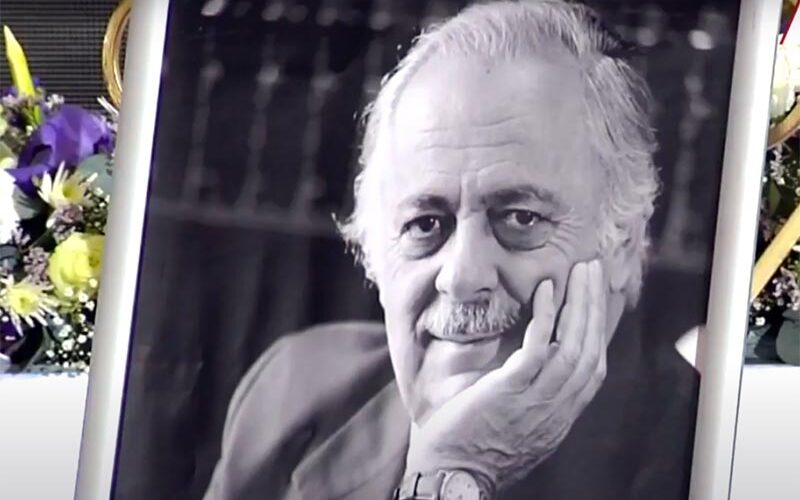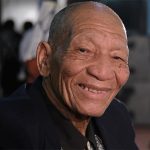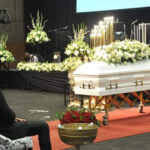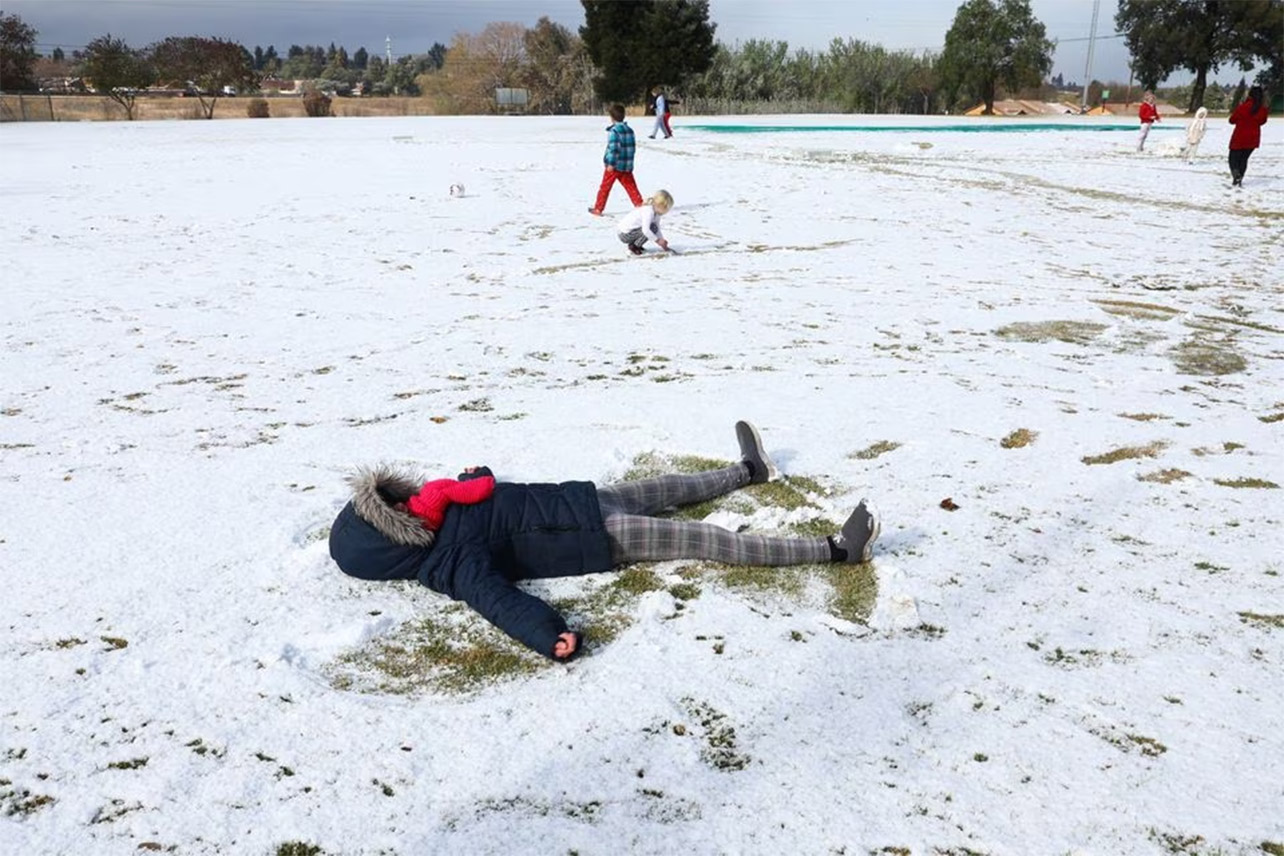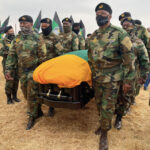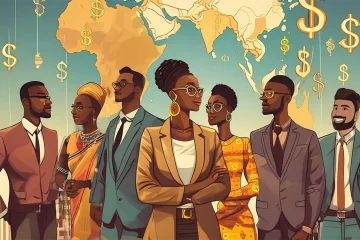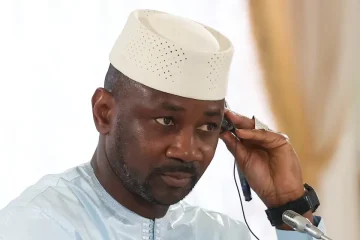AFRICAN MIRROR REPORTER
WARM tributes have been paid to the legendary South African human rights lawyer George Bizos, who has been laid to rest at the Heroes Acre at Johannesburg’s West Park Cemetery after an official, simple and yet dignified funeral service.
Bizos, 92, who defended Nelson Mandela, Walter Sisulu and many other political activists, passed away a week ago. He was a towering figure in legal and political circles in South Africa, was also a central and respected figure in the Hellenic community in Johannesburg, where he was affectionately called “Papou George” (Grandfather George).
His funeral service, an official burial with full military honours, was held at the Cathedral of Saints Constantine and Helen in Hillbrow, Johannesburg, a historic church that was built in 1912. It is the church where Bizos was married and where the funeral of his wife, Arethe Daflos, known as Rita, was held. He was buried, in a simple casket, at the Heroes Acre at Johannesburg’s West Park Cemetery.
Former Deputy Chief Justice Dikgang Moseneke, a mentee who shared special moments with Bizos described him as a remarkable human being who deeply cared for others. “I am deeply proud that I lived so close to your life,” he said.
Moseneke said he hoped that all young lawyers in South Africa would draw and drink from the eternal fountain of high values that Bizos shared with the late Chief Justice Arthur Chaskalson. “Your life has to remind all new lawyers and indeed all young people of what it is to live fully, to live vigorously, to live with principle, to live well and mainly for others,” he said.
Moseneke traced his friendship and partnership with Bizos through the many poor and ordinary South Africans as well as the political activists they successfully defended in the South African courts. They defended anti-apartheid activist Fabian Rabiero, journalist Thami Mkhwanazi, activist and communicator Ronnie Mamoepa, poet Ingoapele Madingoane, charged for possession of his own banned poetry, Zwelakhe Sisulu, editor of the New Nation, Winnie Madikizela-Mandela, the families of Chris Hani, Steve Biko, Ahmed Timol, Neil Agett, the Cracdock Four and Marikana victims.
“When it was not at all fashionable, particularly for white South Africans, George Bizos chose the side of the powerless, of the tormented and of the oppressed. He chose the side of the Batlhaping people near Zeerust, who were facing apartheid eviction,” Moseneke said.
Bizos’ grandson Nicholas, paid a warm tribute: “Every turn that Papou made, every weave of the tapestry that was his life was done with the honest intention of making things better, of doing something right, something to correct an injustice or help relief someone’s suffering. There was never selfishness, arrogance or fame as his goal. Guided by the principles of fairness, equality and justice, Papou aimed at changing lives through his knowledge of the law. Materialism was never a part of his life. His beginnings were humble, his middle was humble and he was humble at the end. The impact that he had was always through his actions or his words, never through what he owned or accumulated. Injustice hurt him. It’s what drove him to who he was. He never wanted anyone to practice hegemony over another over some immutable characteristic. He saw humanity in all and gave his lifetime to protecting this humanity.”
In his eulogy, South African president Cyril Ramaphosa, in paying a tribute to Bizos, said a giant tree has fallen.
Ramaphosa said Bizos’ past nourished his passion to help those who suffered injustice. “He knew the pain of exile of being stateless and rootless. There can be no doubt that his personal background influenced and nourished the great well of empathy, of compassion and as well as solidarity that drove George in the practice of law. He was, in his own words, a lover of freedom. The love of freedom would put him on an inevitable collision course with the apartheid state. He was destined to be an activist lawyer and champion of the liberation struggle,” Ramaphosa said.
Archbishop Damaskinos of Johannesburg and Pretoria for the Greek Orthodox Church said Bizos was both a luminary and a beacon of hope for the South African Hellenic society.

